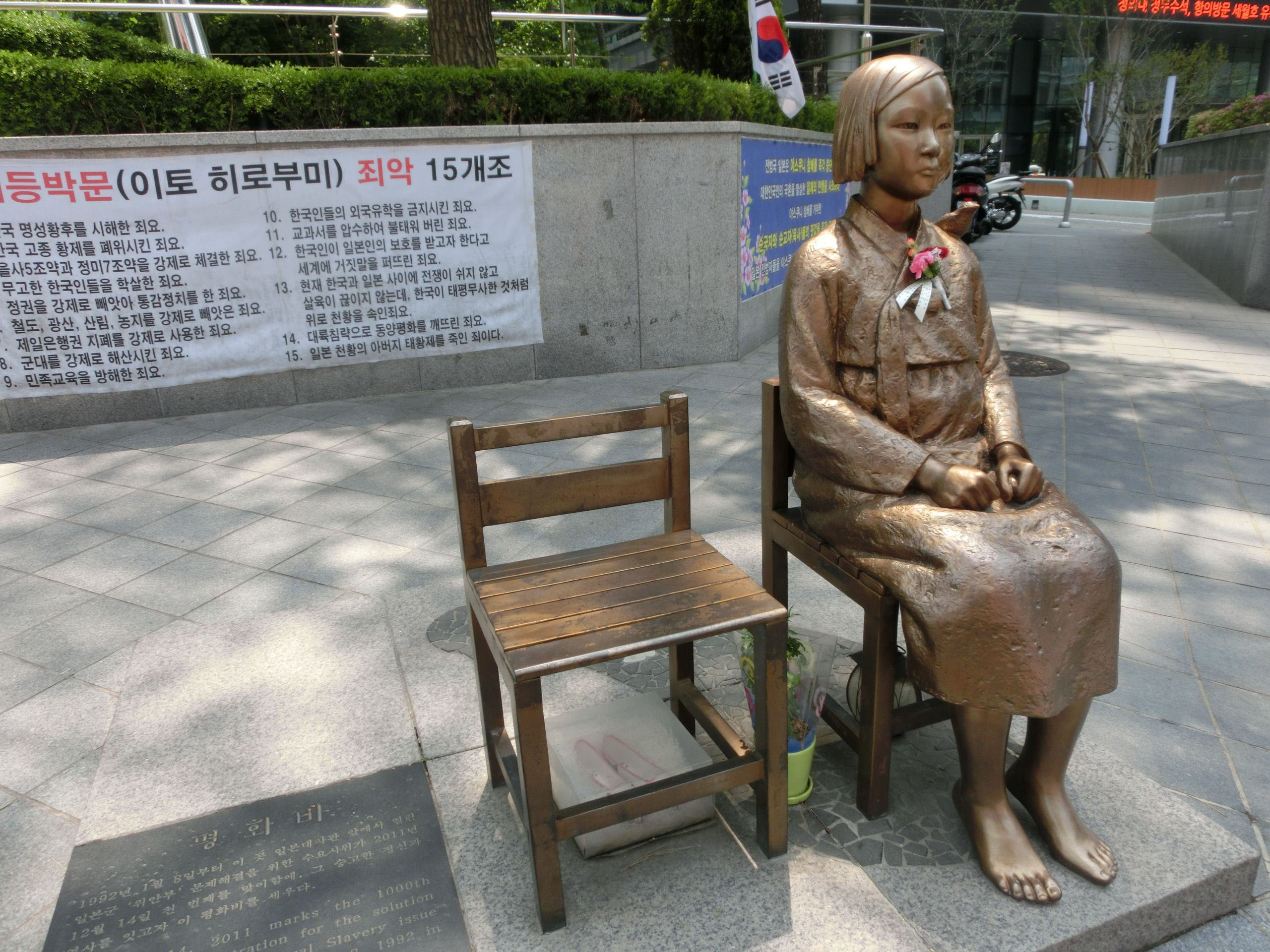History haunts and inflames contemporary relations between Japan and South Korea. In an August 2010 speech commemorating the centennial of the Japanese annexation of the Korean Peninsula, then-Prime Minister Naoto Kan said: "The Korean people of that time were deprived of their country and culture, and their ethnic pride was deeply scarred by the colonial rule that was imposed against their will. Those who render pain tend to forget it, while those who suffered cannot forget it easily. To the tremendous damage and sufferings that this colonial rule caused, I express here once again my feelings of deep remorse and my heartfelt apology."
This apology drew a rebuke from current Prime Minister Shinzo Abe and right-wing groups gathered outside the prime minister's official residence in protest.
Japanese reactionaries have been eager to turn the page on the shared past before it has been read, while Koreans show no inclination to forgive or forget the traumas experienced at that time. No issue is as divisive as the "comfort women" system that involved Japanese military and government complicity in the coercive recruitment of young women, mostly Koreans, to serve in military brothels. The Diet is reexamining the testimony of former comfort women that was used as evidence in crafting the Kono Declaration in which the Japanese government took responsibility for the comfort-women system and promised to atone for it. The Asia Women's Fund, launched in 1995 and terminated in 2007, offered compensation and letters of apology signed by the prime minister, but because it was an equivocal gesture sidestepping the state's legal responsibility, it did little to promote reconciliation.



















With your current subscription plan you can comment on stories. However, before writing your first comment, please create a display name in the Profile section of your subscriber account page.